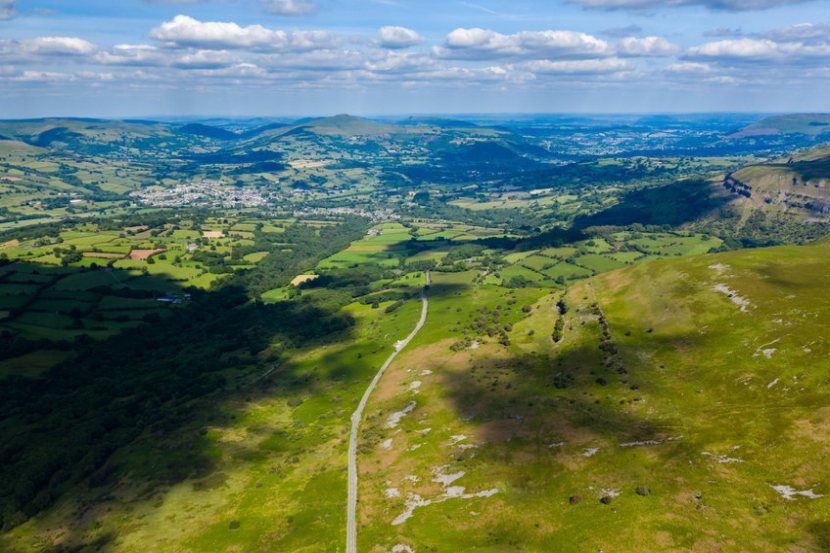
A large amount of farmland in Wales is being lost to carbon offset projects sold at high prices to wealthy corporations, MPs have warned.
Concerns have been raised that companies could be attempting to "game the system" by investing in farmland to offset emissions which is then lost to Welsh agriculture.
Farmers could find themselves "priced out" of good quality land as many cannot compete with the prices paid by wealthy companies.
The Welsh Affairs Committee said it was concerned to hear that around a fifth of farms had a business income of less than zero with an average income of £26,000 per farm.
The Welsh government should consider whether it had "appropriate safeguards" in place to ensure firms investing in carbon offsets had "credible" emission reductions schemes.
The UK government should also improve the transparency and regulation of such schemes, which in "effect create a change of land use".
MPs said greater transparency may be achieved by the creation of a register of carbon offset schemes so that the extent of this problem could be monitored.
Stephen Crabb MP, chairman of the Committee, warned that Welsh agriculture was facing a challenging time in a number of different areas.
He said that farmers, many of whom were already struggling financially, could not compete with wealthy companies buying up land for carbon offset projects.
"While offsets could be a useful tool in meeting net zero, there must be adequate safeguards in place to avoid greenwashing by companies relying on offsets to avoid difficult decisions to tackle emissions at source," he said.
The potential lack of farmland is just one of the issues facing farms in Wales. Farmers feel the "economics are stacked against the family farm" referring to the single farm payment, working hours and rent.
MPs said that both the UK and Welsh governments should work together to create a scheme to support farmers plan for their retirement.
The language and cultural traditions maintained by family farms across Wales are also at risk, MPs who sit on the Committee warned.
Wales' agriculture sector represents 43% of Welsh speaking workers, and with farming dominated by over 60s, when they retire there are concerns that the language could be further eroded.
Many younger generations are leaving due to the lack of work, and the Committee recommended that new entrants are supported into farming.
Mr Crabb added: “With older generations dominating the farming community, we must make sure they have a suitable route into retirement so farming, and the rich legacy of traditions that come with it, continue in younger generations.”
